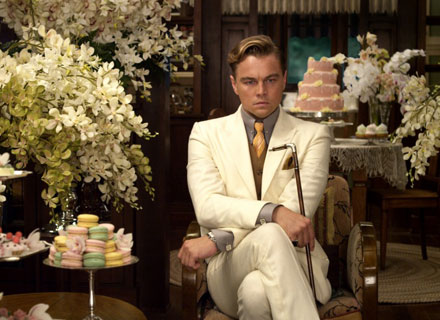The Great Gatsby tells us the world is an empty place without faith
How will the Baz Luhrmann film, out in the UK next week, confront its existential themes?
By Fr Alexander Lucie-Smith on Friday, 10 May 2013

Leonardo di Caprio plays Gatsby in Baz Luhrmann's new film
Are you getting ready for The Great Gatsby, the latest film adaptation of F Scott Fitzgerald’s novel, which has already opened in America and which will open on this side of the pond next week? I myself have prepared by re-reading the book, and will most certainly be seeing the film when it arrives.
Why the excitement?
First of all, the director is Baz Luhrmann, whose Romeo + Juliet was so astonishing. Second, the cast is stellar. There is the relative newcomer Carey Mulligan, along with Leonardo di Caprio and Tobey Maguire, both of whom are first-class actors. Third, the book is, to use an overworn word which in this case is the only word that will do, iconic.
Fitzgerald is not that great a writer, and fans will probably not forgive me for saying that his other books are duds. But in Gatsby he manages to convey the atmosphere of the time; very few writers ever do this; Waugh is one, but Fitzgerald’s evocation of the lives of the rich and the less rich in the roaring Twenties (the events in the novel are set in the summer of 1922) probably creates our impression of the time as much as it describes it.
What a strange world it is, the world of the novel! The reality that the characters live in is wafer-thin, and under the brittle and glassy surface, unpleasant truths lurk. The climactic scenes both centre around dead bodies, as if this were the terrible fact from which humanity is fleeing. In the end the novel is about death, and how we can never cheat it, how it stalks us through life. There is something elemental about the world of Gatsby: on the one hand it is about all the things people want: love, power, money, renown, glamour; at the same time it is telling us that none of these things are lasting, all of them turn to dust and ashes. Gatsby’s palatial mansion on Long Island turns out to be as false as a Potemkin façade.
Gatsby is not really a religious novel, but it is, in an odd way, a moral novel, telling us about the emptiness to be found in the heart of human desire, the hollowness of life. It is close in spirit (as well as date) to T S Eliot’s famous poem The Wasteland. It may not tell us anything about religion or the life of the spirit, but it makes one thing clear. The world is an empty place, and we need some spiritual truths to make life bearable; and faith is the best refuge we have from the sterility of life and the pressing nature of death. Or so it seems to me: I wonder how the film will confront these existential themes?
No comments:
Post a Comment